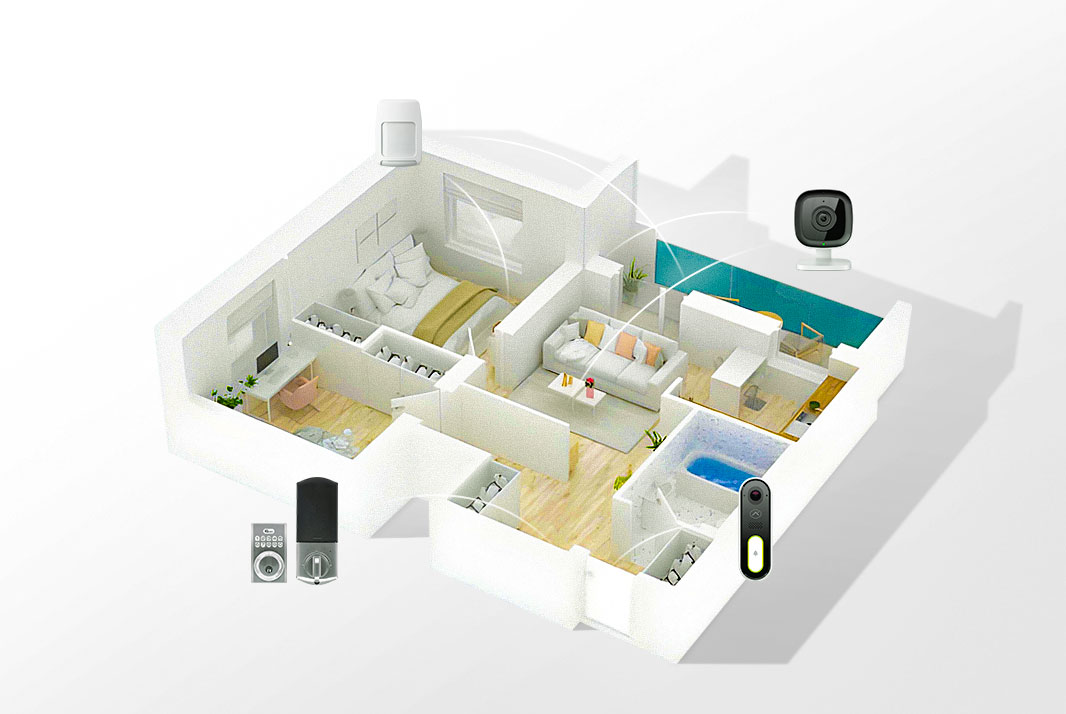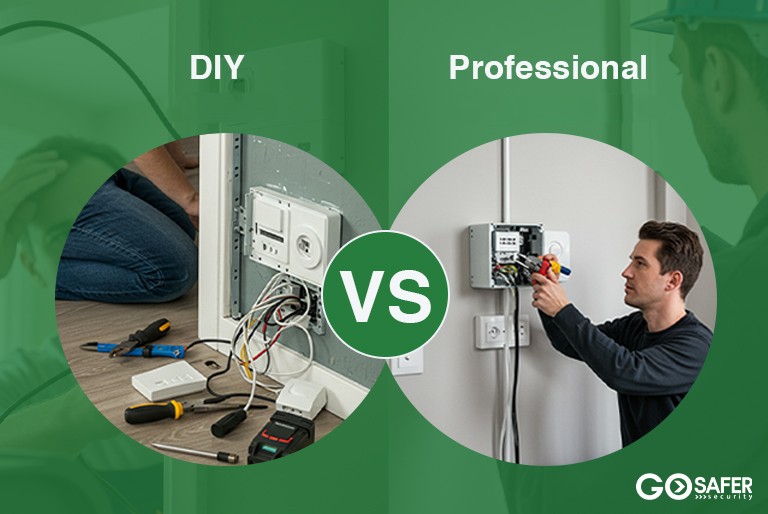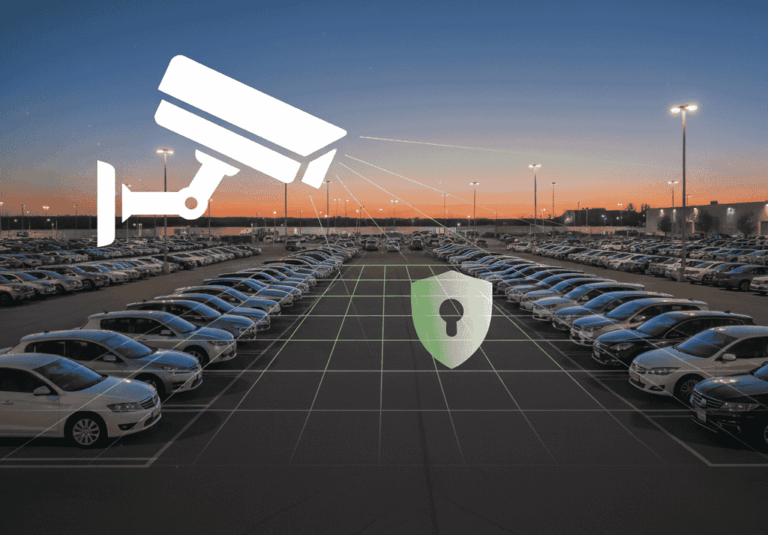Ensuring the safety and security of our homes has become more important than ever. Enter smart home security systems, the modern solution to traditional home protection. But what exactly are these systems, and how have they evolved over time?
Table of Contents
ToggleWhat is Smart Home Security?
Smart home security refers to a collection of devices and technologies designed to protect your home using internet-connected gadgets. These systems allow homeowners to monitor and control their security remotely through smartphones, tablets, or computers.
The Evolution of Home Security Systems
Home security has come a long way from simple door locks and window bars. Early systems involved basic alarms that would alert homeowners to intrusions. Over time, advancements in technology have led to the development of sophisticated smart home security systems that offer comprehensive protection and control.
Key Components of Smart Home Security Systems
Smart home security systems are made up of various components that work together to provide a secure environment. Let’s dive into the main components that make up these systems.
Smart Cameras
Smart cameras are the eyes of your home security system. They allow you to monitor your property in real-time, record footage, and even communicate with visitors or intruders through built-in speakers and microphones.
Smart Locks
Smart locks replace traditional locks with ones that can be controlled remotely. You can lock or unlock your doors using a smartphone app, and some models even allow you to grant temporary access to guests.
Motion Sensors
Motion sensors detect movement in and around your home. When they sense unusual activity, they trigger alarms and notifications to alert you of potential threats.
Smart Alarms
Smart alarms are integrated with your security system to provide immediate alerts in case of a breach. These alarms can be customized to trigger sirens, send notifications, or even contact emergency services.
Doorbell Cameras
Doorbell cameras are a popular addition to smart home security systems. They allow you to see and communicate with anyone at your door, whether you’re home or away, adding an extra layer of security.
Benefits of Smart Home Security
There are numerous advantages to investing in a smart home security system. Here are some of the key benefits:
Enhanced Safety and Security
Smart home security systems offer advanced protection compared to traditional methods. With real-time monitoring and instant alerts, you can respond quickly to any potential threats.
Remote Monitoring and Control
One of the biggest advantages is the ability to monitor and control your security system from anywhere. Whether you’re at work, on vacation, or just out for the day, you can keep an eye on your home.
Integration with Other Smart Devices
Smart home security systems can be integrated with other smart devices like lights, thermostats, and even smart speakers. This allows for seamless automation and enhanced control over your home environment.
Real-Time Alerts and Notifications
These systems provide real-time alerts and notifications to keep you informed of any security events. Whether it’s a door opening, motion detected, or a camera picking up unusual activity, you’ll know right away.
Deterrent to Burglars
The presence of a visible security system can deter potential burglars. Knowing that your home is protected by advanced technology may make intruders think twice before attempting a break-in.
How Smart Home Security Works
Understanding how smart home security systems work can help you make the most of your investment.
Connectivity and Communication
Smart home security devices communicate with each other and with you via the internet. They use Wi-Fi, Bluetooth, or other wireless technologies to stay connected and relay information.
Role of Artificial Intelligence and Machine Learning
Many smart home security systems use AI and machine learning to enhance their capabilities. These technologies can analyze patterns, detect anomalies, and even predict potential security breaches.
Cloud Storage and Data Security
Most smart home security systems offer cloud storage for storing video footage and other data. This ensures that your information is safe, even if the physical devices are damaged or stolen.
Installation and Setup
Setting up a smart home security system can be a straightforward process, but there are a few things to consider.
DIY vs Professional Installation
Some systems are designed for DIY installation, which can save you money. However, professional installation ensures everything is set up correctly and working properly.
Step-by-Step Installation Guide
- Plan your system layout and choose the best locations for each device.
- Install cameras and sensors according to the manufacturer’s instructions.
- Connect all devices to your home Wi-Fi network.
- Download the corresponding apps and pair your devices.
- Test the system to ensure everything is functioning correctly.
Common Installation Mistakes to Avoid
Avoid placing cameras in areas with poor lighting or obstructed views. Make sure sensors are positioned where they can accurately detect movement. Always follow the manufacturer’s guidelines for optimal performance.
Cost of Smart Home Security Systems
Investing in a smart home security system involves several costs.
Initial Purchase Costs
The initial cost includes the price of the devices and any additional equipment needed for installation. This can range from a few hundred to several thousand dollars, depending on the complexity of the system.
Subscription and Maintenance Fees
Many smart home security systems require a subscription for cloud storage and advanced features. Maintenance fees can also apply for professional monitoring services.
Cost-Benefit Analysis
While the upfront costs can be high, the benefits of enhanced security, peace of mind, and potential savings on insurance premiums often outweigh the investment.
Privacy Concerns and Solutions
Privacy is a significant concern when it comes to smart home security.
Potential Privacy Issues
Potential issues include unauthorized access to your data, hacking, and surveillance concerns. It’s crucial to choose systems with robust security features to mitigate these risks.
Data Encryption
Look for systems that use strong encryption methods to protect your data. This ensures that even if the data is intercepted, it cannot be easily read or used.
User Control Over Data
Opt for systems that allow you to control your data. This includes deciding what is stored, who can access it, and how it is used.
Smart Home Security Trends
The smart home security industry is constantly evolving. Here are some of the latest trends:
Advances in AI and Machine Learning
AI and machine learning are making systems smarter and more efficient. These technologies can improve threat detection and reduce false alarms.
Increased Adoption of 5G Technology
The rollout of 5G is enhancing the connectivity and responsiveness of smart home security systems, allowing for faster data transfer and more reliable connections.
Integration with Smart Home Ecosystems
More systems are being designed to integrate seamlessly with other smart home devices, creating a more cohesive and efficient home automation experience.
Tips for Choosing the Right Smart Home Security System
Choosing the right system involves careful consideration of several factors.
Assessing Your Home Security Needs
Determine what areas of your home need protection and what features are most important to you, such as video monitoring, remote access, or professional monitoring.
Comparing Features and Prices
Compare different systems based on their features, reliability, and cost. Consider both the initial purchase price and ongoing subscription fees.
Reading Reviews and Ratings
Reading customer reviews and ratings can provide valuable insights into the performance and reliability of different systems.
Maintaining and Upgrading Your System
Regular maintenance and timely upgrades are crucial for ensuring your smart home security system remains effective.
Regular Maintenance Tips
Regularly check and clean your devices, update software and firmware, and replace batteries as needed.
When and How to Upgrade
Upgrade your system when newer, more advanced technology becomes available or when your current system no longer meets your needs.
Smart Home Security for Renters
Renters can also benefit from smart home security systems, with a few considerations.
Portable and Non-Invasive Solutions
Look for portable, easy-to-install devices that do not require permanent fixtures or modifications to the property.
Legal Considerations
Check with your landlord or property management before installing any security devices to ensure compliance with lease agreements and local laws.
Future of Smart Home Security
The future of smart home security is promising, with several exciting developments on the horizon.
Emerging Technologies
Technologies such as biometrics, facial recognition, and advanced AI are set to revolutionize home security, making it more efficient and user-friendly.
Predictive Security Measures
Future systems may use predictive analytics to anticipate and prevent security breaches before they happen, providing even greater peace of mind.
Common Misconceptions about Smart Home Security
There are several misconceptions about smart home security systems that need to be addressed.
Myths vs Reality
Some common myths include the belief that smart home security is too expensive, overly complicated, or easily hacked. The reality is that there are affordable, user-friendly, and secure options available for everyone.
Debunking Common Myths
Smart home security systems can be customized to fit any budget, are designed for ease of use, and come with robust security features to protect against hacking.
Conclusion
Smart home security systems offer a modern and efficient way to protect your home and loved ones. With various components, benefits, and features, these systems provide enhanced safety, convenience, and peace of mind. Whether you’re looking to install a new system or upgrade your existing one, understanding the key aspects of smart home security will help you make an informed decision.







